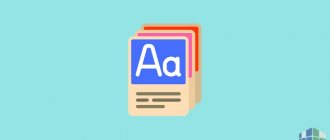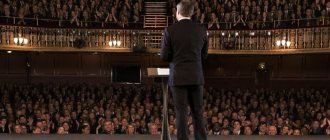Updated: 05/16/2021 14:19:25
The ability to think and know a lot are the highest achievements of a person. Education eliminates stereotypical thinking, generally accepted misconceptions and opinions, and gives inner freedom. Have you ever thought about what knowledge you have and how well you understand the nature of things? If you understand that you cannot always maintain a conversation and often “float” in current topics, engage in self-education. Can an ordinary person become a polymath? Expertology experts will guide you on what needs to be done.
Who can be considered smart and what is intelligence?
Who is considered smart and what is intelligence? If you read carefully, you will notice that the question is divided into two parts. And you should start with the second one. Intelligence is the ability to apply existing knowledge in practice. Such a definition seems simplistic and does not dispel the mysterious fog of consciousness and overthrow a person from the pedestal of complexity. However, this is true: the mind is an ability.
Of course, this judgment is not based on biological premises. The gray matter in the head cannot be a “skill” and, if you like, a “perk”, since it is a material object. At the same time, there is no need to go into neuroscience: it is enough to remain on the plane of philosophical reflection and not consider the mind from the point of view of the functioning of neural connections and similar properties of the brain.
The answer to the first part of the question posed is obvious from the above thesis: an intelligent person is one who is able to apply the knowledge he has in life activities. In reality, there is a yawning chasm between theory and practice, and to step over it means to become smart.
Looking at one problem from all sides
The symbol of the Bonn science center is a sculpture representing an elephant and four blind men who are being touched on four sides. One feels the leg, the second the tail, the third the torso, the fourth the trunk. And everyone imagines only what they touched.
Only a collective image allows us to determine that it is an elephant. This confirms the usefulness of the diversified development of an erudite. He knows how to look at a problem as a whole and evaluate it from different angles, applying knowledge.
What is the difference between an intelligent person and an erudite one?
A popular type of television show is to invite educated contestants and start asking them tough questions. This is how, for example, “Own Game” was born. The respondents appear to the audience as smart people, but it is a mistake to consider them as such.
If Anatoly Wasserman is not a smart person, then what kind of person is he? Erudite. What is the difference? And the fact is that erudite people are the living embodiment of databases, or, as they used to say, encyclopedias. Millions of compacted facts in the head, extensive knowledge in various fields (from agriculture to cosmology), developed memory - it is easy to recognize an erudite, but it is difficult to work together with him.
Therefore, smart does not mean erudite. However, these are not antinomies. It’s great if a smart person is also well-read: in this case, he increases his chances of living a fruitful life.
A truly sensitive question: “Which of them is better?” Well, if we’re going to extremes, then it’s more profitable to join the community of smart people. Of course, if you wake up such an individual in the middle of the night and ask about the diameter of his neighbor’s garden, then, most likely, he will turn to Russian obscenities, however, if you tell him that oil deposits have been discovered under the neighbor’s plot, then he will figure out how to extract from this information benefit.
The problem with domestic education is that both schools and universities produce erudites. This can be easily proven by looking at the content of the educational program: for example, bachelor's degree economists study natural science in their first and second years. There is no doubt about the value of natural science as such. There are only desperate guesses thrown into the void about how an economist uses the laws of motion of celestial bodies that he is forced to know in the process of calculating the net profit of an enterprise. In such conditions, becoming an intelligent person is the exception rather than the rule.
Reading books
Books read are also an excellent basis for erudition - well, of course, if they are not women's novels or detective stories by Dontsova. In the latter, by the way, there are definitely sensible thoughts, but it is difficult to glean useful information from them.
But classic examples of fiction contain a lot of useful information, especially if the book describes the author’s contemporary era. By the way, a pretty good result for those who do not like educational books and magazines: both pleasure and benefit. Well, who would tell us so fascinatingly about various poisons if not Arthur Conan Doyle through his character Sherlock Holmes? By the way, the author of this most famous detective of all time also had encyclopedic knowledge, which he shared with his readers.
How can you determine your level of intelligence?
It is difficult to measure the incommensurable. The fact is that it is not entirely clear what “intelligence” is. We sorted it out with intelligence and erudition. We should go further and clarify that both of these qualities are components of intelligence. However, thinking in this direction ultimately comes to a dead end.
Harvard psychologist Howard Gardner identifies several types of intelligence:
- linguistic;
- mathematical;
- musical;
- spatial;
- kinesthetic;
- interpersonal;
- intrapersonal.
They do not compete with each other, since they are all equally important, but at the same time, some of them can be “dominant”, while others can be “dormant”.
Robert Sternberg, professor of psychology at Tufts University, classifies types of intelligence as follows:
- analytical;
- creative;
- practical.
Scientists do not have a consensus on the essence and functions of intelligence. There is only an understanding of its diversity. However, here too discrepancies arise due to difficulties in recognizing the signs. Creative intelligence... But what is creativity? How does it arise? What happens? It is not completely known. Therefore, the classification itself is in question.
Not a reassuring but important conclusion: there is no accurate way to measure intelligence. The best that can be done is to try to define it in terms of its inherent properties.
Ken Robinson, in his book Calling, gives three characteristics:
- diversity: in addition to mathematical abilities, there may also be musical, artistic, architectural, etc.;
- dynamic: different parts of the brain are used to solve problems;
- Distinctiveness: Intelligence, like fingerprints, is unique.
There are many tests on the Internet. Whether to go through them or not is everyone’s personal choice. It is more effective to determine what you are good at - sports, science or art - and then, in order to increase your intelligence and become smart, develop skills in your chosen activity.
Why is erudition needed?
This question arouses discussion, discussions and debates take place around it. Some argue that polymaths are eccentric people who waste time on unnecessary hobbies. Those who want to know everything absorb books that come their way and get carried away by unnecessary knowledge.
They are like collectors who enthusiastically chase after old stamps, badges or works of art. In the same way, scholars increase their knowledge by looking for new roads for this.
Reasoning this way, representatives of the first group answer the question negatively: is it necessary to increase erudition? In ideas, erudition is an accumulation of knowledge, and not the ability to make discoveries and guarantee breakthroughs in the field of technology.
The second part of people responds to such judgments with the phrase: he who is not educated is ignorant. To support this statement, they give examples where ignorance is costly for others:
a lawyer who does not understand legislative terms and rules; a doctor who makes a diagnosis over the phone or misses signs and does not identify problems in time; a psychologist who has superficial knowledge and gives advice without delving into the question; a teacher of Russian, history, or another subject who has knowledge that is gleaned only from school literature.
Each of these cases is based on a lack of professional knowledge and a low level of education. These problems together lead to the inability of the specialist to assess the situation in the critical spectrum. As a result, it is impossible to find correct solutions.
Erudition is the ability to think beyond primitive explanations of the existence of the world. It leads to the development of a special mental makeup.
Is it possible to become smarter if you are already an adult?
It is always possible to become a smart person. At least as long as you have the strength to launch thoughts and make movements.
A common belief is that the older you get, the weaker your brain (cells die and all that). Language learning is often cited as an example. Learning a new language is easier for children than for adults, therefore the reason is in the years they have lived.
Indeed, thinking potential narrows with age, but the scale of this process is exaggerated. The reasons why it is easier for a child to learn a language lie not in the youth of the brain, but in psychological perception: the child is in a language environment and he inevitably has to delve into what is happening and use new words in his speech; he speaks freely, without thinking about mistakes, and his parents often praise him.
This, by the way, leads to an important conclusion: education (to become smart) requires a non-classical approach. At school, students are scolded for giving wrong answers, which makes them afraid to try something new.
They lose touch with the real world, replacing it with the pages of textbooks, and judge themselves based on the numbers written in red pen in the diary. You need to drive fear deeper and allow yourself to make mistakes in business. Any smart person made bad decisions at first before gaining practically valuable knowledge.
As for maturity and old age, this is an insignificant barrier to becoming smart if a person regularly trains his mind. It's never too late to learn. Just look at famous writers - a considerable number of them were not very intelligent in their youth, but despite this, they were able to create masterpieces.
Of course, the sooner you start, the better. Youth gives an advantage, but not so much a biological one as a temporary one, because, in essence, we are talking about mastering skills, and this almost always does not happen quickly.
The essence of the concept
Intelligence and its components were first described by the German scientist Wilhelm Stern at the beginning of the 20th century. Then many scales and methods for diagnosing mental abilities appeared, including the famous IQ test.
This concept cannot be equated with cognitive, mental abilities. They are only a working tool of the intellect.
The most comprehensive model for this term was proposed by the American psychologist Joy Paul Guilford. In his opinion, intelligence includes 120 factors.
All of them can be classified according to three indicators:
- content (human mental work);
- operations (method of information processing);
- result.
The development of intelligence is possible if you work on all these points. However, in ordinary life, a person may have many ideas that he analyzes in every possible way, but cannot put into practice. He just doesn't have the skill for it.
It is very important to know how to increase your intellectual level in all areas. But more on that later
Top ways to become smarter and increase your intelligence
Intelligence is necessary to solve problems. Then it is necessary to find methods that speed up this process.
There is no need to look for the answer in the context of a specific activity. It was said above that the concept of “intelligence” is closely related to the nature of the activity in which it is involved. Obviously, a writer must write, a musician must play, and a mathematician must calculate. The point is different: to stimulate the intellect to perform its function.
So how can you think faster? Here we still have to turn to the properties of the brain.
Daniel Kahneman, psychologist, Nobel Prize winner in economics (for his contribution to the development of behavioral economics) in his work “Thinking Slow, Decide Fast” refers to the experience of Roy Baumeister, who came to an interesting discovery: the speed and accuracy of thinking is influenced by glucose levels. The nervous system consumes a lot of glucose, so mental activity depletes the body. That's why popular wisdom says that you should eat a chocolate bar before an exam.
Kawashima Ryuta, a neuroscientist, developer of educational games and writer, in his book “The Japanese System of Intelligence Development,” recommends eating heavily before starting mental work. You think better on a full stomach - this is a scientific fact.
Scientists make it clear that diet determines the alertness of thinking. In addition to spices, the brain loves nuts. And in general, healthy and high-calorie food. Meat, vegetables, meat, fruit, meat, baked goods and, of course, meat, meat, meat.
Physical exercise has a positive effect on brain health. Morning warm-up, walking, working out in the gym - all this is done by smart people. They often live a very long time due to the fact that they are attentive to the needs of their body.
Rest. Whatever you say, it’s good to relax. Of course, a lot depends on the type of leisure. For example, drinking alcohol in a bar while watching a football match is unlikely to improve your mind - on the contrary, you will have headaches in the morning.
It is most preferable to spend time doing light developmental activities: reading literature, watching movies, playing computer games (but not excessively), listening to music, drawing, modeling, and so on. Active recreation is also encouraged: hiking, rock climbing, ball games, and the like.
Meditation should be highlighted separately. To most people it seems absurd, charlatan, too oriental. However, they did not try to sit quietly for 15 minutes, not thinking about anything and watching only their breathing - thoughts kept rummaging around in their heads, giving no rest. Sometimes you need to “turn off your thinking” to give your brain a rest.
So, regardless of the type of activity, the following help to become a smart person:
- diet (glucose, regular meals);
- physical exercise;
- rest;
- meditation.
The art of speaking beautifully
Would you like to be able to speak on any topic, learn how to talk about boring things in an interesting way, master the power of words, express your thoughts in a convincing and argumentative form, improvise with ease or clearly follow a prepared speech? If yes, then you simply need to master the art of eloquence.
In order to master the art of speaking beautifully, you must first:
- Find harmony in your inner state, that is, overcome self-doubt or fear of an unfamiliar audience, and tune in to a positive result. Of course, the ability to overcome anxiety before public speaking comes with practical experience, which can be gained in an acting circle. During the classes you will learn how to develop eloquence, overcome stage fright and unfamiliar interlocutors. Teachers will also point out your mistakes and give individual recommendations on the topic of relaxation, eliminating anxiety before a performance, trainings will help you become a more confident person.
- It is impossible for an adult to learn eloquence without working on the quality of speech, sound production, and diction. Talking a lot or quickly does not mean talking beautifully. The details that help you become an eloquent speaker and simply a pleasant conversationalist are important. There are many practices that include all kinds of breathing exercises and speech warm-ups. Many of these exercises only become effective when done with a professional acting coach. Improper execution of the technique will not improve diction and will not establish the correct breathing, which is necessary for a long performance.
- A topic that fascinates you will help you develop eloquence; your strong point can become your calling card. Don't be afraid to talk and talk about your favorite hobby or pleasant event. Then you will appear to the audience as energetic, interesting, “lively” and, of course, eloquent. To do this, even in the most scientific and “dry” topic, find facts that are interesting to you, draw analogies with interesting events, draw diagrams that simplify the content of your report, use illustrations and video materials.
- Try to joke with the audience; their favor will definitely reveal your eloquence. Train yourself in improvisation in public speaking classes and feel free to participate in all kinds of training to develop self-confidence. An eloquent speaker will always get away with it. He can fend off any awkward and tricky question and cope with a negative public.
- You can and should develop eloquence in parallel with training your memory. Remember bright phrases, word forms and buzzwords, which will make your speech bright, special and memorable.
Eloquence is an entire art, the ability to control minds, which means that anyone who does not know how to learn eloquence should also turn to the study of psychology. Once you understand how certain words and expressions affect your interlocutor, you will be able to effectively control your consciousness, which means your speech will achieve the desired result.
That is why it has recently become fashionable to study NLP (neurolinguistic programming) or to pay great attention not only to speech, but also to non-verbal communication (gestures, postures, facial expressions), which are designed to further add weight to you as an interlocutor.
In acting classes, you will learn the procedure for preparing your speech: hone your diction, learn relaxation, postures, gestures and facial expressions, you will be able to forget about many problems and concentrate on the content of your speech. Lessons in eloquence and rhetoric in a theater studio will allow you to enrich your vocabulary, you will get rid of filler words and understand how to learn to speak beautifully in a minimum amount of time. For those who want to start learning from a young age, a theater studio for children in Moscow is suitable.
How to become an erudite person
You cannot become smart without being at least a little erudite. The point is that before knowledge can be used in any business, it must appear. Therefore, it is necessary to highlight effective principles of the cognition process.
Principle one: know why I need it
Aimless memorization of facts is mental masturbation. Of course, it is not always known in advance what will be useful in life and what will not, but this does not at all justify a complete lack of goals. The polymath first asks himself what he wants to know and why. Always. Then he does it.
Principle two: use trusted sources
The polymath works most of the time with information channels. Today there are truly many of them. As well as data. That is why he pays so much attention to the competent consumption of information.
He always starts with the question: “How reliable is the source?” Most often the answer is simple. Sometimes it is covered with a shadow of contradictions: let’s say, one scientist developed a theoretical model, and a community of other scientists criticized it - and try to understand how much his ideas correspond to reality.
Principle Three: Ensure Consistency
Memory is such a forgetful minx. The fact is that without periodic repetition, knowledge disappears from the head. The question arises: how often should the material be repeated? Answer: depends on time. For the first couple of days, reproduce what you have covered in your head, then every other day for a week, then once a week individually; However, to ensure that knowledge is sustainable and never disappears, Barbara Oakley, author of Think Like a Mathematician, recommends solving problems. True, in this case, the erudite turns into an intelligent person, therefore, if desired, one can derive evidence (so to speak, from competent work with the material) according to which erudition is the previous stage of intelligence and only after going through it can one become smart.
Narrow profile
So, this option involves in-depth knowledge of one area. Just to begin with, you need to clearly define the area in which you want to achieve maximum competence. And also understand what exactly your limitations are.
Because before going somewhere, it is important for every person to know his location, the point from which he will move. Only in this case is it possible to build a route.
By the way, when an adult admits his limitations, this makes him even more significant in the eyes of his interlocutors.
Prepare colorful stickers on which you will write down topics and nuances that you would like to return to and pay more attention to. Make a training plan so that you have at least a rough idea of how long it will take you to achieve your goal. And also to structure the work, breaking it down into small tasks. You will learn how to draw up such a self-development plan from this article.
How to expand your horizons
Just think: the geography of the daily movements of the average person is limited to a couple of regions. How can one have a broad outlook in such conditions if the circle of vision is narrow?
That's not all. It’s the same with information: social networks, a couple of YouTube channels, news.
What is horizons? This is a worldview, that is, a set of knowledge about the world and personal beliefs. All this is the result of the experience and its comprehension (reflection). Therefore, you need to worry more and comprehend better.
Let's start with information. The section on erudition provides proven principles for working effectively with it.
Next, you need to expand your “area of habitat.” A couple of areas are scarce. Home, work, home, work, students also have studies. In such a routine body movement, the worldview narrows to the size of a bus window.
Reading magazines
Don’t forget about magazines: long gone are the days when subscriptions to “Science and Life” were given only to the lucky ones, and it was impossible to get a binder for previous years even in the district library. Now magazines are available to everyone, varied, on expensive paper, with colorful pictures.
Every supermarket has a shelf with magazines on different topics. And the kiosks with periodicals are simply bursting with them. Special series for collectors: dolls from different eras, military aircraft, weapons, jewelry, cuisine of the peoples of the world - the eyes just run wild.
Simple tips if you think you're not too smart
If you're wondering if you're smart enough and feeling frustrated about it, check out these guidelines:
- Don't compare yourself to others . In the era of globalization, cute schoolgirl Anya from 11B grade may come across a photo of an American model with big lips on Instagram and be disappointed that she doesn’t have them. She will cause a scandal to her parents or, worse, quietly pump herself up with Botox in a beauty salon. The press is full of similar stories. The comparisons are often emotional.
- Don't idolize authorities . Usually, teachers are like that, because they can sometimes accurately assess a student’s abilities. However, alas, teachers also make mistakes. Just because Anya is bad at solving equations does not mean that she is an incapable pianist.
- Determine if this is what I'm doing . It happens that “it’s not mine,” and that’s all. Can't play chess? Perhaps it will turn out to be checkers.
- Believe in yourself . Goethe called self-confidence “magic,” because only with it can one make dreams come true. The German writer proved that he was right.
- Find out what caused the doubts . This is the final point because it calls for a reading of the previous ones. It is a truism, but the evidence is not as easy to understand as it seems. You should not carry the burden of this feeling or resign yourself to it. He cannot be consigned to oblivion. It is no less important than love. A mental wound requires treatment.
The paradox is that smart people usually underestimate their abilities. So, doubt in itself about one’s intellect can be an indicator of its development, but it is still harmful, because it slows down a person’s endeavors. In addition, insecurity is instilled by society, especially among young men. Everyone was taught to be more modest and not to pretend to be the best.
They become geniuses. This means that even if a person does not feel like a genius, he has a truly attractive opportunity to become one.
Letting go of perfectionism
Some people sin by starting to strive to always be the first in everything. Others want to do everything perfectly. This is impossible by definition. How to become erudite if you constantly want to prove something to someone? First, you need to give up the idea of doing everything right. Everyone makes mistakes, there's nothing wrong with that. Sometimes even mistakes are necessary in order to be able to grow above your problems and try to solve them with all your might. Only after going through special tests can you understand what you are really worth and in which direction you should direct your efforts. It is known that perfectionists are the most unhappy people in the world. Refusal of such a position will allow you to achieve a lot and free yourself from internal torment.
Non-fiction of the XX International Book Fair
It is difficult to compile a list of the best books for the development of erudition, because this is a purely individual question. But experts from the largest Book Fair in Russia are quite capable of giving advice.
Gregory Burns. What does it mean to be a dog? And other discoveries in the field of animal neurobiology
Per. from English I. Evstigneeva. M.: Alpina Non-Fiction, 2021. 333 pp.
489 - 547 rub.
Gregory Burns. What does it mean to be a dog? And other discoveries in the field of animal neurobiology
Scientists study animals to try to discover cognitive abilities. Stories about scientific experiments on dogs, dolphins, and fur seals are presented by one of these scientists. Does the dog understand what color is called blue? What is “here” and “there” is clear to us, but to the Navy SEALs? Scientific research is always a complex but interesting process. Having taught dogs not to be afraid of a tomograph, the scientist told what was going on in the dog’s head. Navy SEALs understand musical ri using ultrasound. Everyone has feelings similar to humans.
Advantages:
- the author strives to show that the animal world plays an important role in the life of the planet. They only lack speech skills, otherwise they see, feel, and rejoice like people.
Flaws:
- Laboratory experiments on animals cannot be popularized; this is animal abuse.
Lyalya Kandaurova. Half an hour of music. How to understand and love the classics
M.: Alpina Publisher, 2021. 438 pp.
499 - 504 rub.
Lyalya Kandaurova. Half an hour of music. How to understand and love the classics
The author-musicologist explains the essence of classical music to generations who grew up after Perestroika. Easy-to-read four-part formatting. Read for yourself what the original names mean, it’s not written in an abstruse way, it’s easy and interesting to read. The author twists the plot like a detective film, intricate, mysterious, fascinating. Any play that is described can be downloaded on the Internet using a code and listened to. Knowing the history of creation, the principles of collecting notes into bars, listening becomes much more interesting.
Advantages:
- thanks to the author: I discovered the polyphony of Okegem;
- QR codes - you listen to the work that is written about, this is a good plus.
Flaws:
- I graduated from music school, but it was difficult to navigate among the variety of terms.
Dilshat Harman, Mikhail Mayzuls, Sergey Zotov. The Suffering Middle Ages
M.: AST, 2021. 416 pp.
457 - 696 rub.
Dilshat Harman, Mikhail Mayzuls, Sergey Zotov. The Suffering Middle Ages
A rare example when an Internet public (a community of history lovers - half a million subscribers) became a bestseller. Here you will find explanations for the marginalia in the margins of manuscripts and frescoes of the Middle Ages, strange, sometimes completely obscene. Monkeys in the margins of ancient manuscripts, obscene figures on church walls - where does such sacrilege come from? 600 illustrations, well-written text, seasoned with humor - this is how it turned out to be a historical piece. Its educational character and innovative ideas made it controversial for scientists, but one of the most widely read historical publications.
Advantages:
- it turned out to be a good encyclopedia of medieval icon painting for those just entering the topic, not for professionals;
- five thousand illustrations - that’s cool: European, Christian painting (Catholics, Protestants, Lutherans); The main goal - to unravel the symbolism of medieval paintings - was successfully completed.
Flaws:
- Often the image is not on the page where it is mentioned, this is annoying;
- frivolous pictures, the authors help to understand their meaning, but there is nothing about drawing technique, color symbolism.
What's good about non-fiction?
A widely educated person begins not with nuclear physics, but with fiction. It is a very important stage for the development of intelligence. Knowledge of the classics will immediately reveal your education when communicating with others. Further, erudition rests on popular science and scientific literature, which has an antagonistic definition - non-fiction (non-fiction). This part of the literature includes:
- journalism;
- popular science publications;
- encyclopedias, dictionaries, reference books;
- biographies, memoirs;
- religion;
- psychology;
- self-knowledge, self-development,
- art, culture;
- sport, health.
Of course, not funny “popular pictures” from the series of how to quickly lose weight or get rich from an unknown Name, but written by professionals, experts in their field. The current wave of printed products does not have time to be studied, analyzed, and checked. Some people trust false information without having time to check its accuracy. True scholars will never evaluate a fact based on one source of information. They will read several, find inconsistencies, and get a real version of the event. Because they look at the elephant as a whole, which means they know how to analyze.
Non-fiction at the Red Square Book Fair
The selection from the “Popular Science Book” series was made up of publications that were in high demand at the fair and was liked by the literary expert-critic.
Richard Dawkins. Selfish gene
Publisher: Gorpus, translation by N. Fomina, 2013. 512 pp.
564 - 576 rub.
Richard Dawkins. Selfish gene
The author's first book (1976) remains the most widely read of all his works. This is a masterpiece of literature and biology, published in 20 languages. Well illustrated, it teaches about evolution and genetics. What is obvious to biologists will be a discovery to the “non-biological layman.” Informative, interesting: let’s take a walk with the author through time from insects to humans, talk about nature’s strategies, behavioral characteristics, and the “cultural revolution.”
Advantages:
- the author is an excellent conversationalist, smart, subtle, simply talks about complex things;
- we are biological machines - tough but honest;
- serious scientific work, controversial, but presented at a very accessible level;
- Even for a 100% humanitarian, it was tough.
Flaws:
- There are absolutely no illustrations, diagrams, or graphics.
Diana Halpern. Psychology of Critical Thinking
Publishing House PETER. Series: Masters of Psychology, 2000. 512 pp.
Electronic version, download for 240 rubles, 512 pages.
Electronic version downloaded for free, 158 pages.
Ayana Halpern. Psychology of Critical Thinking
A serious work on cognitive psychology, informal logic, in which there is a lot of psychological research. Interesting descriptions of fallacies - logical and intuitive, options for analyzing argumentation, tools for developing effective thinking, many other issues related to logic, memory, and brain function. A good guide for those who want to think modernly and will help with self-education.
Advantages:
- the structure of the text is correct - from simple to complex, each chapter is like an independent work, at the end there are conclusions, terms, it is very convenient to study;
- there are a lot of quotes, examples, problems - the head works, it’s not easy to read diagonally;
- real research, practical application suggested - excellent.
Flaws:
- not found.
David Edmonds. Would you kill the fat man?
Publishing house of the Gaidar Institute. 2021. 256 pp.
David Edmonds. Would you kill the fat man?
Philosophical work on the topics of ethics - “what is good and what is bad.” The science is subtle, with a lot of contradictions and paradoxes, and is described by the author with knowledge of the matter. Easy to read and gives a lot of useful knowledge. Ethical dilemma: are you ready to push one fat man onto the rails to save five tied to the same rails? Questions of the moral philosophy of “walking on corpses” or universal love have always been of interest precisely because of the complexity of choice.
Advantages:
- excellent narrative structure, easy and interesting to read;
- educational: catchy because there is no “correct” answer to some questions, both are wrong.
Flaws:
- a lot has been written about the “trolley problem”, an important point, but it is only a stepping stone to the main topic;
- For some reason, the author delved into the personal lives of female philosophers, completely off-topic, but there is not enough analysis of the problem.










